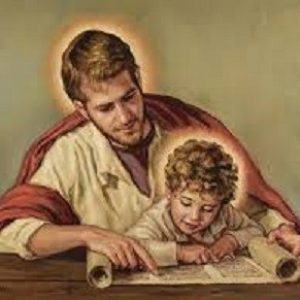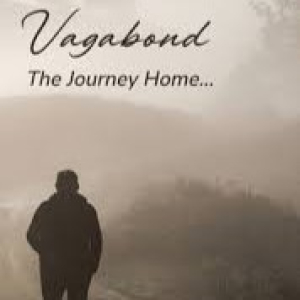Peter MALONE
Arab Blues/ Un Divan a Tunis
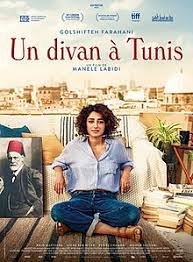
ARAB BLUES/ UN DIVAN A TUNIS
France/Tunisia, 2019, 88 minutes, Colour.
Golshifteh Farahani, Majd Mastoura.
Directed by Manele Labidi.
The English title refers to the population of Tunisia, Arab background, Muslim background, but all the personal and psychological problems. The French title uses divan – but the English title could be divan or sofa, but, more particularly, couch because of the psychoanalysis scenes.
Central character is Selma, born in Tunisia, parents exiled, growing up in France, training to be a psychologist, returning home, wanting to set up a practice. She uses the roof of a building owned by her relatives who do not necessarily approve, although their daughter is very friendly with Selma.
Selma goes to a headdresser and advertises her practice – and, very surprisingly to her and the audience, there are long queues. In fact, rather than long psychoanalysis sessions, there are quite a few clients and episodic moments, revealing characters and problems, some a touch funny, some very serious. The only long conversation occurs with an elderly man in the building who has felt alienated from the authorities at the local mosque.
The other central character is the local policeman, holding up Selma’s rickety truck, abiding by the letter of the law, warning her that she could go to prison without a license, yet attracted to her personally. A lot of to-ing and fro-ing. There are also the frustrating visits to the authorities in order to get a permit.
There are also Selma’s own problems, returning home, the practice, the law, the interactions – and the film does offer a lot of critique of bureaucratic behaviour in Tunisia, eccentricities as well as the perennial problems.
A short film, rather slight, it has its entertaining moments.
- The title, the divan, the psychology couch, the focus of Tunis? The English title and psychology problems?
- Tunisia, the city setting, homes and apartments, apartment blocks, the streets, the shops, police precincts, government offices, the trip to the country to see the grandfather, the open spaces, the beach sequences? The musical score?
- Selma’s story, born in Tunisia, her parents and exile, aged 10, growing up in France, training as a psychoanalyst? The street crowded with psychoanalysts? Her return, her hopes?
- Her personality, age, living alone, strong-minded, continually smoking? Reuniting with her relatives, their disapproval? The daughter, her problems (education, red hair, wanting to break out, the planned marriage with the gay man, its failure, her travels with Selma)? The background of the relations, the father and his drinking, the later revelations about his frustration, the mother and her frustrations (and her daughter hiding behind the divan)? Some reconciliation?
- The manager and her style, the advertisement, the long line, the range of clients, the glimpses of sessions, some serious, some farcical, the range of problems? Talking, Selma listening, the strictness on time, on payments? And later revealed her payments in all kinds of food and goods?
- The buying of the truck, held up by the police, the chief, the breath test, the later encounters, his abiding by the rules of the law, her having to have a license, the threat of prison, yet asking her out? His two assistants and their continually intervening, interrogations, suspicions and false accusations? Selma and her plea for the compassion for the clients with their problems?
- The visits to the office, the chatty woman, trying to sell goods, enjoying the ? interactions The bureaucracy, the delays? Going to visit her grandfather, his old age, living in the past? The truck, the breakdown, the driver picking them up, listening, her story?
- Eventually wanting to leave, the harassment from the two police? The rescue by the Chief? Her going to the office, finding the documents?
- The range of clients, the hairdresser, the cross-dresser, the paranoid about Mossad, the mother with the clinging son…? The old man, the mosque, wounding himself, the long talk?
- Selma, her work in the truck, her setting up her practice, going to the beach, the police chief, imagining the future?
- The sympathy for ordinary people, their problems, the need to find someone who will listen to them attentively and sympathetically?
Christmas Eve at Miller's Point
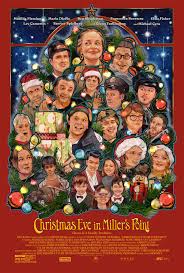
CHRISTMAS AT MILLER'S POINT
US, 2024, 104 minutes, Colour.
Matilda Fleming, Maria Dizzia, Ben Shankman, Francesca Scorsese, Michael Cera, Greg Turkington, Sawyer Spielberg.
Directed by Tyler Taormina.
Very American. Very, very American. Christmas Eve at a Long Island town, winter, snow, American Christmas traditions.
This is very much a film for American audiences, audiences from other countries and cultures observing, not necessarily identifying. In fact, many American audiences have not responded well to the film, uninteresting, boring… (And, if this is the case for some Americans, it is probably true for non-American audiences.)
This is the response to the film as a fiction. Had it been presented as a documentary, the approach of the audience might have been much different, observing, comparing, checking out American characters, communications, manners. There would have been a reason for looking at the film. It should be said that a number of reviewers commented very favourably on the film. Bloggers did not.
The film certainly sets the atmosphere of Christmas Eve on Long Island and the town. The focus is on the extended family gathering for celebration, the meetings, delineation of characters, conversations, some themes taken up and then lost in the crowd. There are the different generations as well. There are discussions, drinks, the elaborate meal in conversations, the beginnings of a discussion about aged care for the grandmother but then other conversations supersede. The adults are generally at home, sometimes venturing out into the evening of the snow.
The very young generation stays with the family. The teenage, younger teenagers, go out into the town, meet up with locals, conversations, some teenage daring, and then some pairing up in the cars.
While this is presented as typical Americana, films in other parts of the US, in different cultures, Hispanic or African-American, the states in the South…, There would be a lot of differences.
Throughout the film there are two policeman, generally silent, looking like caricatures, sitting in their police car, observing, played by Michael Cera (who produced the film) and Greg Turkington, seemingly from another film. And, unexpectedly, there is the conversation about mutual attraction, the implications for their relationship. Definitely for another film!
So, for non-American audiences, something of a curiosity item.
Good Man. A
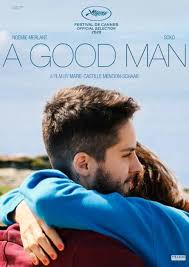
A GOOD MAN
France/Belgium, 2020, 107 minutes, Colour.
Noemie Merlant, Soko, Vincent Dedienne, Anne Loiret.
Directed by Marie-Castille Mention-Schaar.
For audiences seeing the film without any pre-knowledge there will be some surprises, even shocks, challenges. The title itself has some ambiguities.
The audience is introduced to Ben, working with a partner, visiting the sick, helping in the hospital. He is young, seen diving and swimming, athletic and energetic. He has been in partnership with his girlfriend, Aude, for six years, moving from the city of Aix to a small island off the coast. An ordinary enough scenario.
In an extended flashback, the audience is introduced to Aude, a dancer, encountering a sullen young woman at the dance, Sarah. Sarah declares she is not lesbian. The two women bond. And then the realisation that Ben is transgender, in the process of transition. This is a tour de force performance from Noemie Merlant, Portrait of a Lady on Fire, Tar, sullen and depressed Sarah, for obsessed as Ben.
The key issue of the film is the desire on the part of Ben and Aude to have a family. Aude is unable to have children, there have been several attempts and miscarriages. The decision for Ben, still capable of conception, is to carry and give birth to the child. Visits to gynaecologists, legal issues, a document declaring Ben as male and the mother/parent of the child. And the sadness for Aude, legally she has to adopt the child. At first, she is very happy, a pleasing scene where she shops for toys for the baby. But, discussions with a fellow dancer, feeling sidelined, she leaves.
There are significant scenes throughout the film on the issue of a man and pregnancy, discussions with his brother, alienation from his mother, Ben in hospital after an accident, she visits and there is some kind of communication. Then there is the disbelieving clash with the co-worker who feels betrayed in learning who Ben really is.
There is a birth scene, very moving in its way, and Ben holding the new born child,.
There is an understated ending, a long take of a large group of parents and children playing on a Park hillside and, gradually, Ben and Aude and the baby walking past the camera, leaving audiences to put together the issues and the emotions.
Many favourable reviews of the film but quite strident attack on a transgender site. The screenplay does not explain a lot of detail – relying very much on audience response to the characters, the situations, and testing out their own understandings and emotions.
- The title? The levels of meaning as regards Ben, his life, career, relationships?
- The French island setting, the small town, homes, visiting the sick, doctor’s rooms, hospital? The scenes in Aix and the parties? The outdoors, the coast, the beach? The musical score?
- The transgender theme, not introduced immediately, establishing Ben as a man, at work, with Aude? Audience realisation, adapting to this understanding? The response throughout the film, those appreciating Ben, his close workmate and his feeling that he was lied to, bewildered? Ben’s mother and her memories of Sarah growing up? This film in the light of 21st-century in 2020s discussions of transitioning, acceptance, political condemnations?
- Ben, athletic, swimming, visiting the old man and his tender care, the conversations with the woman and her ill husband? This work at the hospital, working with his colleague, the bonds? Ben and his relationship with Aude, six years, the partnership, the love, each with a great desire to have a child?
- The flashback to the dance, Aude, by herself, a dancer, watching her boyfriend, meeting with Sarah, sullen, reticent, declaring she is not a lesbian, the kiss, the return to the apartment?
- The return to the present, the audience looking more closely at Ben, male presentation, fitness, beard, moustache, voice…? Starting the transition process, testosterone? His not telling people, the reasons? The consequences?
- The discussions with his brother, his brother’s family, his brother supporting him? The discussions about his mother, scenes between them?
- The episode of the attack on Aude, her running, the fight, the accident, Ben in hospital, his mother’s visit, her paying the bills? Her explaining the difficult relationship as Sarah grew up, not responding to her mother, no breastfeeding, alone? Her mother’s bewilderment, wanting her daughter to confide in?
- The decision about the baby, Ben still having the uterus and ability to conceive? The visits to the doctors, the process? The beginning of the pregnancy, development? The issue of the legality, the reception of the document from the judge, his male identity, yet his being able to be listed as mother of the child? The effect on Aude, the legal requirement for her to adopt the baby?
- The talk with his coworker, more than surprised, the reaction, feeling lied to, hurt, leaving? But his later relenting, helping in transporting them to the hospital?
- The effect on Aude the scene of buying the baby clothes and sharing with the shop assistant? Sometimes edge with Ben? Her beginning to feel sidelined? The discussion with the dancer, her past, the possibilities, her deciding to go away?
- Ben, alone, the development of the pregnancy, walking? The doctor’s advice, a connection with a midwife? Hospital, the birth sequences, the baby emerging, holding the baby, his mother’s presence, cutting the cord? Ben and his happiness?
- The final sequence, the long glimpse of the group of children playing, the joy, families, and Ben and Aude finally emerging with the baby, walking past the camera, leaving it to the audience to appreciate?
Aftermath

AFTERMATH
US, 2024, 97 minutes, Colour.
Dylan Sprouse, Mason Gooding, Dichen Lachmann, Daniel Rios Jr, Megan Stott, Will Lyman.
Directed by Patrick Lussier.
One of the many action-popcorn thrillers to sit back and watch on streaming services. It has a Christmas setting – which may remind audiences of thrillers set at Christmas, especially Die Hard. Aftermath is in this vein.
The setting is Boston, the Tobin Bridge, just before Christmas. A former Army man, dismissed from the Army for not obeying orders because of compassion for an Afghan woman oppressed by her husband who shoots her, is driving across the bridge with his younger sister, precocious and forward, wanting to drive the car and his allowing her. He is obviously protective of her – memories of the woman in Afghanistan.
Suddenly, an explosion, the central part of the bridge destroyed and falling into the River, some cars, and cars parked on both sides of the gap.
The audience has also been introduced to a tough female prisoner, Doc, being transported in the van across the bridge – and audiences will guess that the explosion is to get to her. The reason, she has been part of an elite squad of former soldiers, employed by the government for jobs outside regulations, she having given information to the authorities.
The film establishes the group who are out to capture Doc alive, a bargaining point with the authorities. And they want the Pentagon to publish a document on the issues.
What follows is as expected, the young man emerges from his car, putting his military training into action, more than might have been expected. His sister gets out of the car and gets caught up in a lot of the action, finally being offered a safe haven by a driver with his baby. A whole lot of cat and mouse chases and shootouts on the bridge as the audience begins to see the person in charge, his team, the action to track down and get rid of the military man. And, eventually, Doc is drawn into this kind of action.
The team is led by a fierce young former officer, played by Mason Gooding. The screenplay requires him to be young, to be ruthless, determined, but also later revealing that he has a brain tumour. Which explains his action and desperation – but, number of commentators have questioned the casting and the performance (as does this review).
A lot of heroics, a lot of sniping, a lot of shootouts, a special segment where it is revealed that the whole bridge has been set up with explosives and the young Army man, with the help of a sympathetic Vietnam veteran, is able to go under the bridge to defuse the explosives. Which may not matter because in the leader’s van are even more explosives threatening the bridge.
On the periphery are the police, trying to get intelligence of what is happening, who is behind the disaster, trying to make contact.
Not the greatest of action adventures like this but watchable when an audience is in an undemanding mood.
Private Desert/ Deserto Particular
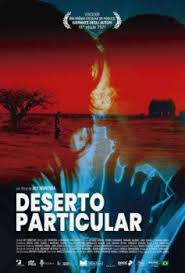
PRIVATE DESERT
Brazil, 2021, 121 minutes, Colour.
Antonio Saboia, Pedro Fasanaro, Thomas Aquino.
Directed by Ali Muritiba.
A film from Brazil which challenges issues of masculinity, male identity, transitions. It has received more than 60 nominations and awards.
The first part of the film focuses on the policeman, under suspension because of a violent incident in which he injured a rookie, media headlines and videos, officials preparing him for a trial and suggesting psychological assessment. In the meantime, he lives at home, looking after his aged father with great care. Yet some help from his student sister.
However, he keeps trying to ring Sarah, with whom he had a relationship in the past. She does not answer. He decides then to travel a thousand kilometres north to find her, putting up notices and photos in the street, eventually meeting her contact.
The second part of the film focuses on Sarah, the audience discovering that Sarah is really Robson, a young man, working hard on a building site, gay, cross-dressing. Robson is persuaded to come to a club as Sarah and encounter Daniel that rushes away. Robson has had difficulties with his parents, but is cared for by his grandmother at home, a religious woman, church meetings, and referral to a pastor who had had similar experiences to Robson in his past.
While the film shows Daniel and his obsession with his relationship with Sarah, there is the drama of his eventual discovery of the truth and his reaction. Which, of course, is the Daniel challenge of the film. Robson’s future is also the other challenge of the film.
The screenplay highlights the difficulties but also offers some kind of resolution.
- Whose desert? Daniels? Robson’s?
- Nominations and awards for the film, more than 60? Acclaim in Brazil?
- The structure of the film: the first half focusing on Daniel, the long opening sequence of him raining, voice-over, life at home, his father, his sister, care? The crisis at work? His contact with Sarah, the phone calls? His driving to find her? The second half of the film, the focus on Robson, his identity, at home, the religious background, the interactions with Daniel?
- Daniel’s world, the scenes at home, his care for his father, the detail, feeding, washing, driving? His sister, her studies, her care for her father, her attitudes, relationships? Daniel asking for work, his friend at the police? The incident, the injury to the rookie, the interviews with the police chief, the court case, suggestion of psychiatric investigation? Daniel, his age, the past and memories of Sarah?
- His decision to leave, the long drive, arriving in the town, asking people, the printout of the photos, distributing them? The phone call from Fernando? The meeting, the discussion, the ferry, Robson sitting on the boat near Daniel? The wordplay and interactions with Fernando? The meeting at the club, Robson as Sarah, escaping? The effect on Daniel?
- The revelation of Sarah, Robson, the background story, his sexual identity, living with his grandmother, the discussions on the beach with Fernando, Fernando as a friend, gay, the salon, going to the church, the preacher, his being referred to the Minister with a similar past? At work, the tough work, construction sites?
- The effect of the previous encounter with Daniel, his coming to Daniel, the dress and the wig, the kissing, Daniel discovering the truth? The effect on Daniel, the shock? The effect on Robson? Daniel demanding the dress back? Robson disrobing? Daniel leaving?
- The further complications, the threat to revealing the truth about Robson? The support of his grandmother? The decision to leave, going to the bus station, the tickets? Daniel arriving, Fernando telling him where he was? The encounter, the passion? Robson leaving on the bus? Daniel and his future?
- The Brazilian setting, universal themes, sexual identity, transitions? Brazilian male culture and dealing with the issues of this film?
Captain America: Brave New World
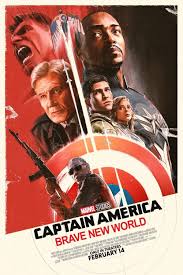
CAPTAIN AMERICA: BRAVE NEW WORLD
US, 2025, 118 minutes, Colour.
Anthony Mackie, Harrison Ford, Danny Ramirez, Shira Haas, Carl Lumbley, Tim Blake Nelson, Giancarlo Esposito, Xosha Roquemore.
Directed by Julius Onah.
Chris Evans was the original Captain America, Steve Rogers, appearing in Captain America, The First Avenger in 2011, giving his back story. He then appeared in America, Winter Soldier and Civil War and a number of Avengers and Spiderman films. Anthony Mackie appeared as his associate, The Falcon, and now has the mantle of Captain America. (And Mackie appeared in the series, The Falcon and the Winter Soldier.)
The world has been experiencing some disasters but, suddenly, an island has appeared in the Indian Ocean, a source of a new element which will help rebuild the world. Needless to say, desired by political leaders, desired by criminal powerbrokers. And an initial episode to get us into the frame of mind with Sam Wilson, now Captain America, with his apprentice, The Falcon, a brash young enthusiast played by Danny Ramirez, fly to Mexico to confront a villain, Sideliner, Giancarlo Esposito, and a buyer for the new element. When are in the picture, Capt America and The Falcon in their distinctive costume, their wings and flying, and the importance of the or defending, all attacking, shield.
Enter from the wings, newly elected American Pres, Theodore Ross, played by Harrison Ford now in his 80s and entering into the spirit of the Marvel Universe with some enthusiasm. He has had a bad reputation in the past, alienated from his daughter, but now insists that he is change. He is negotiating an international treaty, especially with the Japanese Prime Minister, the safe use of the new element.
Then some mayhem, an attempt on his life at the White House, shooters, including a close friend of Sam Wilson now released from jail are taken back. And the revelation of the villainous mastermind, Samuel Sterns, appearing as something of a mutant, played with sinister relish by Tim Blake Nelson. In fact, in prison, he has been experimenting with all kinds of drugs, feeding them to the President, working on mind control for assassins, ambitious to be in power of the element.
In a way, so far more a less expected – and this has disappointed some of the Marvel fans. However, there is a huge set piece towards the end, the Pres himself victim of his medication, transforming into a large Redcap Hulk, wrecking all kinds of destruction including demolishing of half the White House. (And, since the film was released after the re-election of Donald Trump, there is the temptation to look at all the mayhem scenes are some kind of allegory, the Pres morphing into a red raging monster-figure, attacking everyone, demolishing everything, even the destruction of the White House!).
The quiet finale, peace and some prosperity restored, millions in prison. However, marvel fans should not race for the exit during the credits because there is a substantial sequence right at the end. The future?
- The Marvel Universe, Steve Rogers as Captain America, Anthony Mackie as the Falcon, participation in The Avengers movies? The television series featuring The Falcon? Sam Wilson as Captain America?
- The interconnections in the Marvel Universe, the connection with The Hulk?
- The role of Captain America, as initiated by Steve Rogers? The distinctive uniform, the wings and flying, the significance of the shield? The Falcon as apprentice, costume and shield, wings, learning?
- The global situation for the film, post-apocalyptic situations, the United States, hostilities, the emergence of the island in the Indian Ocean, new element, powers wanting possession of it? The working for a treaty for participation in its use?
- The establishing of Anthony Mackie as Captain America, presence, personality, African-American hero? Seeing him in action, flight, the operation in Mexico? Hostility towards President Ross? Being summoned, the discussions with the president, his change of situation, working towards the agreement and a treaty? His previous antagonism towards the president?
- The operation in Mexico, Sidewinder and his presence, the buyer, absence, the conflict? The character of Sidewinder and his presence, deals? The return from Mexico?
- The character of the president, the election, in the wings, the discussions, his address to the people, the acclaim, Together? The first hundred days, the discussions with the Japanese Prime Minister? The discussions with Sam Wilson, his assistant and her presence, Ruth and her security? Sam Wilson investigating her? Joaqui Torres and his computer skills and investigations?
- The character of Isaiah Bradley, his past, imprisonment, skills, meeting The Falcon, the brashness of the young man, Bradley and his strength? His antagonism towards the president? Sam Wilson and rehabilitating him, the invitation to the White House, dressing up, the security, the ceremony, the president, the shooters, Bradley and his role, overcome, imprisoned?
- The consequences, Sam Wilson and investigations, the prison, the laboratory, the information, the profiles, the medication, the character of Samuel Sterns?
- Sterns, his appearance, mutations, imprisonment, his experiments, the president and his dependence on him for medication, his control of the president, his power, wanting the element? His experiments, mind control?
- The president, the visit to Japan, the Japanese Prime Minister wary? The failure of the mission?
- The return to Washington, the press conference, everybody gathered, the replaying of the tape, the president and his deal with Sterns? Sterns and his control, the transformation of the president into The Red Hulk? The mayhem into action? The confrontations?
- The return of the president to himself, imprisonment, his accepting responsibility, the visit of Sam? His alienation from his daughter, her visit?
- Sidewinder and his defeat? Captain America and his future, The Falcon?
- The significance of the post-credits sequence, Sterns in prison, the challenge to Captain America, the future?
Cop Secret
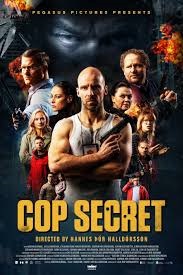
COP SECRET
Denmark, 2021, 98 minutes, Colour.
Aufun Blondal, Egill Einarsson, Sverrir pir Sverrisson.
Directed by Hannes por Halldorsson.
Back in the day, on the big screen and on the television screen, there was plenty of police action, with titles like The Super Cops or Starsky and Hutch. Over time, especially with special effects, the action became more and more beyond-realistic, often sensationalist, often over-the-top, and often humorous. Just think Will Smith and Martin Lawrence in the Bad Boys movies, more and more outlandish as they went on!
With Denmark’s Cop Secret, this is a film to sit back and enjoy rather than ponder deep analysis (although some critics did not relax and criticised the film for a lack of depth!).
One advantage of the film is the Reykyavik setting, especially during the opening credits, aerial views of the city, the more contemporary city, high-rise buildings, streets and avenues, malls… Then, explosions, attempted bank robberies, the villain on the bike, and no-holds-barred car chase. The comic tone is set because our hero, Bussi, is nonchalantly reckless while his partner, is continually apprehensive, afraid, complaining, threatening, quoting the law… Tone is set.
So, Cop Secret is an idiosyncratic sendup of the police genre. There are stock characters to be expected, the tough female boss and her continued demands and complaints, phone calls with the Prime Minister and his complaints about the police behaviour, the very careful officer in the office and at the finale, the interactions between the police officers…
But, the focus is on Bussi, confident in being reckless, not a great respect for details of the law, not minding being called out by the boss, subject to continual complaint by his apprehensive partner. He goes home, a girlfriend but there is a tension between them. He has an Asian neighbour, friendly, who has a little daughter, Bussi showing her the gun and promising to show her how to use it when her father is not looking. (Which does happen at the end of the film!)
But, in the pursuit, Bussi ventures into the next police district, a rivalry with the top detective there, Hordur, smooth, a former model, immaculately dressed, a top shooter, all smiles and agreeable. With the increased number of explosions and attempts on banks, and the spectacular pursuits, the two reluctantly agreed to become partners. But, this works.
In the meantime, the audience is introduced to the criminal group, led by another former model who is planning to steal Denmark’s gold bullion store. A whole lot of thugs in attendance and a smart female criminal who is captured, interrogated, escapes. And, at the end of the week, in the main sports arena, there is the women’s football championship match between Denmark and England. Audiences will anticipate the setup.
But the title! The comment about these police partners is that they are often described as bromance. The secret here and the attraction is a gay one and the film enjoys the development of this relationship, Bussi eventually to come to terms and accept himself, Hordur no inhibitions whatsoever. But, the chief criminal does get photos of the two to hold over them as blackmail. (Interestingly, with a French director, François Weber, the 1981, Partners, with John hurt and Ryan O’Neal, took up the gay partner theme.)
Lots of chases, lots of shootouts, lots of killings of villains, shooting techniques including shooting the person to be rescued in the shoulder and thus distracting the villains. Lots of dangers, almost impossible escapes, and some final humour with Hordur’s Down Syndrome brother who spends his time with computer games – learning how to shoot just at the right moment!
Depending on your mood, sometimes laugh out loud, but often smiles at the sendup and the spoof. (Some reviewers noted that there are many and frequent jokes about Iceland and Reykjavík which may escape the international audience).
King of My Castle
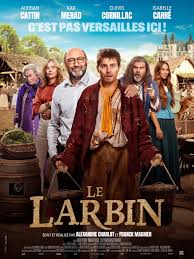
THE KING OF MY CASTLE/ LE LABERN
France, 2024, 98 minutes, Colour.
Audran Cattn, Kad Merad, Clovis Cornillac, Isabelle Carre, Jade Pedri, Marc Riso.
Directed by Alexandre Charlot and Franck Magnier.
Googling reveals that the French title, Le Labern, mean domestic and valet, but can extend to flunky or stooge. In fact, the central character here will have to become “the valet of the piddle”.
This film is a French remake of the very successful Russian film, Son of a Rich. It has been pointed out that the French screenplay follows the Russian film in great detail. (And, in Russia, there was a sequel.)
The film starts in the world of affluence and big business, a CEO urged by his board to resign. There are criticisms of his son, spoilt, extravagant, a bevy of friend hangers on, ready to invade hotels in takeover at any time. The son takes no notice of his father.
Then the screenplay moves into the world of the imagination, the director, writers and some of the cast, previously involved in such satiric comedy is as Welcome to the Sticks, Welcome to the South, and some of the Asterix films.
Clovis Cornillac, certainly one of those associated with these films, plays a self-important film director who is employed by the father, no financial difficulties at all, to set up a location set as the 18th century, the Castle, costumes and decor, actors and locals fulfilling the roles, in contact with the director, improvising the episodes of the drama as required.
The son, Louis, is drugged, left in this setting, waking, thinking he has time travelled. There are many amusing sequences, Louis finding himself as a labern, carrying his bucket, attending an aristocrat in his toilet, living in a barn, old clothes, transformed into a labern. The aim of the exercise, of course, is to make him come to terms with himself, face reality, transform.
We know that it is going to be challenge, quite a range of episodes on the way, falling in love, having to stand in for an aristocrat and endure a public beating, a feigned Viking attack and the challenge to rescue the young lady with whom he has fallen in love…
There is also the story of the ambitious film director, the anxious father, his friend who is also involved in the filmmaking.
What If…?
- Based on a Russian film? Son of a Rich? Close adaptation?
- French humour, characters, satire, the wealthy, ordinary citizens, the spoilt generation? The device of setting up the film, the 18th century village, the citizens acting, the scenario? The moral intention?
- The title, the meaning, domestic, valet, leading to stooge and flunky? Here the valet of the piddle?
- The situation, the wealthy businessman, the board meeting, the criticisms, his resignation? The criticism of his son, the son and his friends, invading the hotel, partying, the confrontation with his father?
- Louis, brought up in wealth, spoilt, arrogant, his friends and their lifestyle? His father exasperated?
- The friendship with Christian Parmentier/Chris Palmer? Filmmaker and the ambitions? Personality, self-confident? The commission to make the film?
- The father, his relationship with Helene, her participation in the film? Chris and his jealousy, Helene as an assistant? Her input?
- The extravaganza of setting up the set, costumes and decor, the actors? The lavish recreation of the 18th century?
- Chris, his ambitions, filmmaking, the scenario, the improvising, the connection with the actors, their responding to direction?
- Louis, the incident in the street, his being drugged, waking up in the 18th century, his believing this, time travel, adapting to the 18th century?
- Louis finding himself as a servant, the valet of the piddle, his bucket, the count and his associates, in the field, the toilet episode and the analysis, health?
- Louis and Sylvain, the accommodation, Louis and the different world, Sylvain encouraging him? His work of service, the treatment by the aristocracy, being looked down on? The encounter with Isabeau, sexual, her running off? Lison and her work with the horses, directed towards Louis, the encounters, her performance, the beginning of his infatuation?
- The aristocracy, the count, the treatment of Louis, the humiliations?
- Audiences responding to this make-believe, enjoying the performances, the role of the director, Helene and her suggestions, the father and his observations and hopes? The improvisations, the threat of the drone? Louis and his memories of the 21st-century, and explaining things to Liz on?
- The incident of the punishment, standing in for the aristocrat, the public meeting, the consequences, the population jeering? The son and her being urged to encourage Louis, the encounters, falling in love?
- The father wanting to give up, Helene wanting to intervene, her ultimatum, Chris and his enjoyment of directing, praising himself, demanding the film to go? Helene leaving? The father ultimately changing his mind and chasing her?
- Setting up the crisis, the Viking attack, the taking of Lison, the urging of Louis to rescue her, his turning his back? Everybody disappointed? His re-thinking, getting a horse, writing to the rescue?
- Drugged, coming to, explaining that he was in a coma, yet his vivid memories? On the horse, writing to the scene, seen Lison – happy ending?
- Chris, seeing himself in the Orson Welles, Stanley Kubrick tradition? The father reunited with Helene? Louis and Lison?
Some Significant February Days for the Chevalier Family, 2025
Some Significant February Days for the Chevalier Family, 2025

2 February, 1934
The Apostolic Prefecture of the Celebes becomes the Prefecture of the Celebes, Sulawesi, Indonesia.
2 February, 1866
Riedenburg, near Bregentz in Austria, blessing of the first statue of Our Lady of the Sacred Heart.
2 February, 1866
Father Jean-Marie Vandel enters the MSC community at Issoudun.
2 February, 1892
The title of Saint Joseph "Friend of the Sacred Heart" is changed to "Saint Joseph, patron and model of those of love the Sacred Heart".
2 February, 1905
Father Chevalier writes his Spiritual Testament for the of FDNSC.
2 February, 1950
Final Papal Approbation of the Congregation and the Constitutions of the MSC Sisters.
2 February, 1962
Erection of the Irish FDNSC Province.
2 February, 1978
The Foundation stone for the first house of the MSC Sisters in India was laid.
3 February, 1891
Since Father Guyot has sent a letter of resignation as General Assistant, Father Maillard is elected to replace him.
3 February, 1891
The MSC General Council protests against the removal of the Acts of the General Chapter, taken away without authorisation, by the Secretary of the Chapter, Father Klotz.
5 February, 1900
Canonical Erection of the Congregation of MSC Sisters and approbation of the Statutes for five years.
6 February, 1855

Chevalier and Maugenest finish their second novena to the Blessed Virgin. Their prayer is answered. They are promised 1000 francs, per year, from a generous benefactor, for their living expenses.
6 February, 1897
The Holy See authorises the MSC to hold a General Chapter.
7 February, 1895
“From a letter of Father Carriere we learn that Rome will gladly grant us the proper of an office of Our Lady of the Sacred Heart, but a translation of the title OLSH would not be included but would be replaced by “Virgin of the Sacred Heart”. This condition, if insisted upon, is unacceptable.” (Acts of the MSC General Chapter).
8 February, 1894
Fathers Theophile Rein and Jules Vandel and two scholastics leave the Congregation and ask Father Chevalier for his blessing to start a new Institute in Belgium. (Father Vanndel will rejoin the MSC later and will go to Sydney in October, 1894).
8 February, 1925
Erection of the North and the South German Province by the division of the “German” Province, erected in 1897.
8 February, 1927
Erection of the USA District of the MSC, entrusted to the North German Province.
9 February, 1900
Colombo: “by rickshaw to the Cathedral of the Oblate Fathers. I hear that Msgr Couppe is aboard the Caledonia. I pay him a visit.” (de Boismenu, Notebook)
10 February, 1885
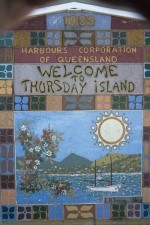
Fr. Verjus and three Italian Brothers leave Sydney for Thursday Island.
10 February, 1979
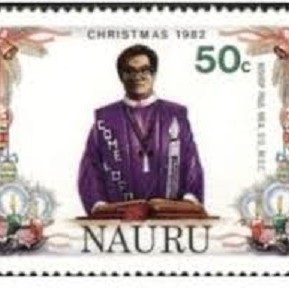
Father Paul Mea MSC appointed Bishop of Tarawa-Nauru and for 30, ordained Bishop at Tarawa, Pacific Union. He is the first local Bishop of this diocese.
11 February, 1893
Father Jouet ceases as Procurator General.
11 February, 1924
Direction of Tshuapa, Zaire, as Apostolic Prefecture, entrusted to the Belgian MSC Province.
11 February, 1979
The MSC Sisters open a Novitiate in Pusan, Korea.
12 February, 1879
Cardinal Simioni, Prefect of the Congregation of Propaganda, offers to the MSC the mission of Auckland, New Zealand.
13 February, 1869
Third audience of Father Chevalier with Pope Pius IX. He asks the Pope to have the Issoudun statue crowned in his name; the Pope delegates the Archbishop of Bourges for the ceremony. The request to elevate the confraternity of OLSH to an archconfraternity is granted, but for the Archdiocese of Bourges only.
13 February, 1886
The foundation of the Mission seminary at Antwerp, Belgium, approved.
13 February, 1903
Father M Niejens MSC appointed as the first Apostolic Prefect of Dutch New Guinea, Irian Jaya, Indonesia.
14 February, 1877

Henri Verjus starts his novitiate by taking the habit at Saint-Gerand-le Puy France,.
14 February, 1952
The tower of the Basilica at Issoudun has a new spire, with an iron cross on top.
15 February, 1927
The “American District” of the German province is established with Father Joseph Stettner as official representative of the German province.
15 February, 1931
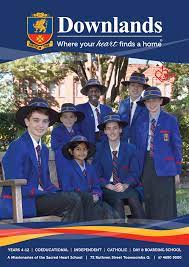
The Australian MSC Province opened its first Boarding School for Boys at Downlands, Toowoomba.
15 February, 1963
Father John Durkin MSC, Ireland, becomes the first Prefect of the Prefecture of Louis Trichardt, South Africa.
15 February, 1981

Fr. Juan Alonso Fernandez, MSC, of the Spanish Province, is violently assassinated in Guatemala.
Juan Alonso Fernandez.
The commander of the post, told him that "it was disgusting for him to have a priest in front of him, that's why he spat on him, because it made him nauseous to see a priest." The Asturian Juan Alonso Fernandez endured a cruel torture that night. He said that "what they wanted was to kill me and I don't know how, they refrained from doing it, because I feel that they would have better killed me and not done what they did to me. In spite of everything, Juan did not give up. He celebrated the Eucharist in the village and went out to celebrate it in a neighboring village. There they waited for him, kidnapped him, tortured him again and shot him three times in the head. Days before, he had said, taking the crucifix that he always carried in his chest: "I became a priest because of this one, and if I have to die because of this one, here I am". It was February 15, 1981. He was 47 years old.
16 February, 1915
Fr. Charles Piperon dies in Thuin, Belgium. He was longtime companion and confidant of Jules Chevalier.
17 February, 1863
Father Chevalier writes: “Abbe de Champgrand stays with us already since last Sunday. I cannot describe his satisfaction. He is enchanted.” The Abbe was the significant donor to the new congregation.
17 February, 1912
Erection of the Quasi-Province of the USA and Canada. Father Pierre L’Esperance was its Quasi-Provincial from 1912-1939.
17 February, 1985
Arrival of the first MSC in South Korea, Father Pedro Arguillas from the Philippines.
18 February, 1936
Official installation of the first MSC from the Canadian Province at Sanchez, Dominican Republic.
18 February, 1986
Erection of the MSC Province of the Dominican Republic.
19 February, 1953
The first at the MSC Sisters take up residence in Messina, South Africa.
20 February, 1953
The day after arrival in Messina, South Africa, two Irish FDNSC nurses begin work in the mining hospital for Africans.
21 February, 1951
The statue of the Sacred Heart that stood on top of the spire of the Basilica at Issoudun since 1862 is destroyed by lightning.
22 February, 1908
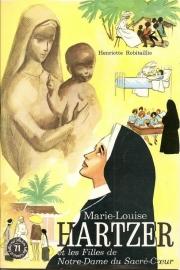
Marie Louise Hartzer, first Superior General of the Daughters of Our Lady of the Sacred Heart, dies in Thuin, Belgium. She is buried four days later. Marie Louise had left France due to the expulsions of religious by the French Government.
22 February, 1931
Opening of the FDNSC Novitiate in Alfenas, Brazil, transferred later to Campanas, on August 7, 1949, to San Paolo.
23 February, 1924
Departure of first Belgian MSC to Tshuapa, Belgian Congo, Zaire.
23 February, 1945

29 Dutch MSC are freed form the concentration camp at Los Baños, Philippines. 20 of them leave for Australia to recuperate.
24 February, 1869
Father Chevalier is in Naples from February 24-26 and stays with (Blessed) Caterina Volpicelli.
24 February, 1985
Fr. Henri Verjus arrives at Thursday Island after having left Sydney earlier in the month.
25 February, 1875
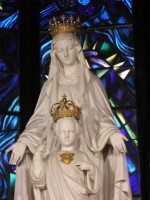
The Holy Office rights to the Bishop of Przemysl in Poland that the Pope has ordered that in the future all new images and statues of Our Lady of the Sacred Heart must represent the Child Jesus on the arms of his mother, and not standing before her.
25 February, 1876
Father Victor Jouet is appointed first General Procurator of the MSC Congregation.
25 February, 1952
MSC sisters, expelled from China, returned to Hiltrup, Germany.
25 February, 1957
Father John Doyle MSC, Australia, appointed Vicar Apostolic of Sideia/Samarai, PNG, is ordained Bishop in Randwick church.
26 February, 1877
Rome, starting on February 26, Fathers Chevalier and Jouet translate the MSC Constitutions into French.
26 February, 1895
The Vicariate of New Pomerania, PNG, is entrusted to the Northern MSC German Province.
26 February, 1908
Burial of Mother Marie Louise Hartzer at Thuin, Belgium.
26 February, 1961
Brother James Uratirip, first MSC of the Rabaul diocese, takes his first vows.
28 February, 1962
Erection of the Italian province of the FDNSC.
29 February, 1920
Msgr de Boismenu leaves Yule Island aboard the Tambar for his third holiday in Europe, February 29 1920-November 20, 1921).
Paul Beirne, an autobiography: Vagabond - The Journey Home
Paul Beirne, an autobiography: Vagabond - The Journey Home
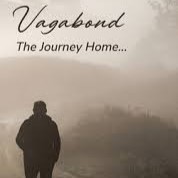
A Review by Vince Carroll MSC
2024. 509 pp. Available on Amazon. C $10.
Paul Beirne is a past student of Downlands, former SVD priest, Dean of the University of Divinity, Director of the Heart of Life Centre, 2014-2021
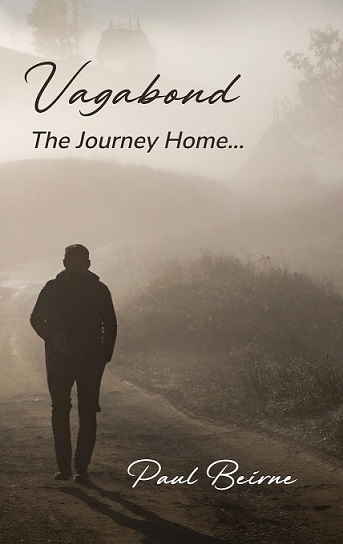
This is a very personal story of Paul’s life as a Divine Word Missionary priest (SVD) and his Missionary work when in training, his studies/work in the USA, and his later work as a Formator for the SVD’s of Pre-Novitiate Candidates, and finally his time as founder and Superior of the SVD Region in South Korea. Disillusioned with the church there and also his society I feel, he left the order and the priesthood after 34 years, married and happily now has two children with Anna.
He writes very beautifully and intimately. I believe he attacks no one in the process, but reports it all as part of his journey. I think the Home he is referring to is the Home of his heart. Deferentially, he thinks of himself as a Vagabond. His writing is very honest, and probably too much so for some. He does not shrink from reporting his sexual exploits, but also for unveiling much of the conflict that was below the surface in (some) SVD communities he worked in/or led. I do not think he left the priesthood over sex/sexuality specifically – that was part of it – but that deeper factors were in play, as he searched actively for his personal meaning/purpose in life.
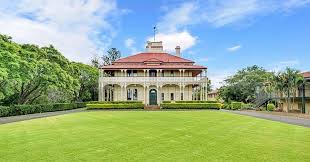
I was particularly attracted to his work as I too thought of becoming an SVD and also experienced a similar Novitiate as the SVD experienced in Marburg, Queensland (where my mother grew up and I know intimately); likewise I worked in PNG for seven (7) years as he did for two. My experiences there were mild in comparison to his – but then I was much older: I 40 years plus, he 19! Then too I have experienced OS Mission in the church, in post-apartheid South Africa (18 years - in two language groups), as well as in PNG (7 in two places) and among the Aboriginal people of Australia (especially the Tiwi of Bathurst island). My experience in those places did not give me the burdens he had to bear in South Korea. But they were demanding enough for me.
I warmed very much to his description of the land and the landscape found in many places in the book, as I also claim to be an environmentalist and warm to the Land, the vegetation and the wild life that he describes in several parts. His experience there it seems to me comes to best expression in his stories of the Fish that flew and the grove of trees in South Korea, that mediated earth, God and sky to him. This Book of Nature is one that reveals God to us. I believe in Paul’s latter chapters he has not quite depth the meaning of this and, for me, the book trails off towards the end.

The flip side to this quasi-mystic engagement with the earth was his growing urgency round sex and sexuality, and finally his obvious contentment in his Marriage and Family Life, which for him is the Home for which he had struggled.
But the road there had been very bumpy: I think he tells some stories of the novitiate days “with advantage” as Shakespeare says – as we all tend to! Then his accounts of his time as Formator in Melbourne is pretty “blokey” – as were our own experiences and for anyone in those days in seminaries. (Football and Grog!) From the conflicts established in a free wheeling pre-novitiate experience that he allowed, he began to find solace in the more and more frequent company of women. This tension, between his vowed celibacy and his priesthood, was not new to him, but eventually added to his reason for departing the priesthood.

His studies and work for the down and out in America are admirable, and it seemed to give him a direction for his Mission in life. He seemed to be happiest when working directly with the poor and down and out. But the Church in Korea with a style like the Confucius hierarchy he could not cop, nor cope with. This was the main seed of his vocation’s destruction – and yet strangely the source of new life as well. Something had to die in order for something else to grow.
This book could well be read by all priests and ex-priests, but especially those in their senior years, as they reflect on their own journey, their loyal contribution to the church and consider what is the Home to which their hearts aspire. Lay Catholics who have shared the burden of the last 60 years in the church may also relish this book. I gave it a 4 star rating.
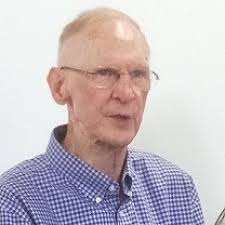
Paul was the Captain of Downlands College (1964) and one of the earliest alumni to go by his choice to an order other than the MSC. In later life he worked for the MSC as Director in our Heart of Life Centre in Melbourne. He makes only veiled reference (two) to his boarding school life and does not mention the MSC nor Heart of Life at all. I find this remiss.
Vince Carroll MSC

